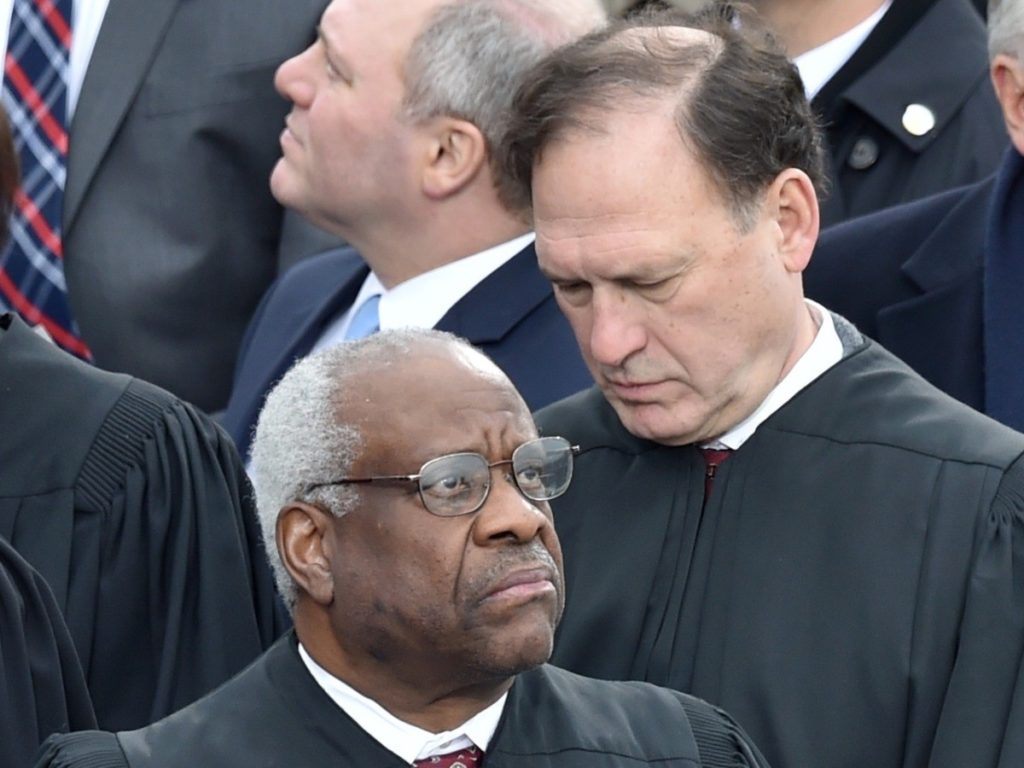Cruel, if less unusual than you would hope

You may remember Glossip v. Gross as being arguably the most cruelly specious pre-Dobbs opinion to crawl out of the chambers of Bloody Sam Alito. The holding of the case was that the state was allowed to torture someone to death if it could not figure out how to kill people without torture, and the burden was on the condemned prisoner to identify a non-torturous method of execution. Really — that was the argument.
Oklahoma is still trying to kill Glossip, which brings us to another salient point about his case — he’s probably innocent:
Nearly ten years into his life sentence for beating a man to death with a baseball bat, Justin Sneed sent a handwritten letter to his lawyer. “There are a lot of things that are eating at me,” he wrote from an Oklahoma prison in 2007. “Somethings [sic] I need to clean up.” He was referring to his testimony fingering Richard Glossip as the mastermind of the murder. “It was a mistake reliving this,” he wrote.
Sneed wrote the letter not long after the state’s court of criminal appeals voted to uphold Glossip’s conviction after his retrial and death sentence, and he seemed adamant to say more about his testimony, which the state relied upon to convict Glossip both times. (Glossip’s conviction after the first trial was thrown out because his lawyer failed to adequately defend him). “If I can’t get in contact with you or anyone who gets your mail, I’m going to try to contact the indigent defense over his case or D.A.’s,” Sneed told his lawyer. Within days, she wrote back. Rather than reassure Sneed that he had told the truth in court, she reminded him that putting the blame on Glossip was what spared him the death penalty. By insisting on his innocence and demanding a trial, Glossip had made the more costly choice. “Mr. Glossip has had two opportunities to save himself and he declined to do so both times,” she wrote to Sneed.
These letters were uncovered earlier this month, adding to a growing pile of evidence pointing to Glossip’s innocence. But the Oklahoma Attorney General’s Office is determined to move forward with his execution, scheduled for December 8. “Nothing has changed in the last seven years,” the state asserted in a pleading it filed, referring to Glossip’s 2015 attempt to have the appellate court intervene. “Not the facts, not the law, and not Petitioner’s guilt.”
Glossip, 59, has a powerful and unlikely ally who believes otherwise: Kevin McDugle, a Republican state representative. If Glossip succeeds in his last-ditch improbable appeal to stave off death, it will be owed, in part, to McDugle’s efforts. A former Marine who served three tours in combat, McDugle, 55, is conservative to the core, describing himself as a staunch foe of abortion, champion of the Second Amendment, and defender of “Christian values.” And yet McDugle has been on a yearslong crusade to exonerate Glossip and has convinced more than 60 of his colleagues in the state legislature to join with him in demanding that the court order a hearing to explore Glossip’s claims, which include explosive allegations of police and prosecutorial misconduct.
If their effort fails, then, as McDugle has publicly pledged, “I will fight in this state to abolish the death penalty simply because the process is not pure.” The cost of halting the death penalty in a state that executes more people per capita than any other — 24 additional executions have been set to take place in Oklahoma over the next two years — would be Glossip’s life.
Roe being overruled is obviously the most prominent bad judicial result of the 2014 and 2016 elections. But if the median vote of the Supreme Court was nominated by a Democratic president it is quite likely that the death penalty would have been held unconstitutional, and at a minimum executions in egregious cases like “a state wanting to torture a prisoner to death although it has little evidence he even committed the offense” would not be going forward.


